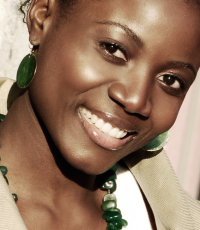All generations, at one point have or will feel the nostalgia of how easy it was “back in the day.” Comparisons between past and present times are made in all areas of life and are exceptionally frequent in music as most of us will agree that many continue to listen to music they have grown to love. With the emergence of the web 2.0 – the influx of social networking sites and others like YouTube – and the need to publicly voice out one’s nostalgia via these mediums, has created a new simultaneity that facilitates a comparison between the past and present. Most of us will be able to relate to the joy that overcomes us when we view a clip or hear a song that was long forgotten, but that was part of the soundtrack of our youth; it tends to trigger emotions and refreshes lost but unforgotten memories that are part of our history.
I was overcome with similar feelings when I rediscovered Common’s hip hop parable, “I used to love H.E.R,” on YouTube and read some of the comments beneath the video frame. You might just go ahead and check for yourself – seemingly every second comment pays homage to the song and the hip hop music of the 90’s.
The comments may not be empirically representative, but beneath almost any great video from that era you will find similar statements and the tenor of these comments clearly indicates that there has been a great shift in the music, or at least the focus of the music has shifted.
Rap has been contradictory ever since it began, but the criticism uttered here is not the criticism of conservative politicians, feminists or people who simply dislike the music and deny its diversity and artfulness; it is a critique boldly stated by die-hard fans, passionate listeners and defenders of the genre.
When I heard and saw the clip I was instantly reminded of the ‘good old days.’ The style of the clothes, the whole atmosphere and vibe of the clip, the laid back beat and of course Common’s distinct voice and lyrics took me back to the days when I discovered hip hop.
In the song Common uses an extended metaphor comparing a woman that he loved to hip hop music. It describes the various phases hip hop underwent during the mid 1990s and criticizes the direction and missteps the genre made during that time. The song depicts the phases of Afrocentricity, the emergence and rising popularity of West Coast and Gangsta Rap and hip hop’s introduction to mainstream music. Common compares the degradation of this woman he loved with the deterioration and change of hip hop music after its commercial success forced it into the mainstream.
To speak in Common’s personified approach/metaphorical terms: I met her when I was 13 years old and more than a decade later I am still with her; Common just released another manifestation of his love for her.
We have been together for more than ten years now, but sometimes our relationship and especially her ways and interests leave me puzzled. Like Common, I “never knew throughout my life she would be there for me” and we have been seriously committed to each other ever since she first got me hooked. Many people around me cannot understand why I stay with her and what keeps our relationship going, but I usually tell them that they simply do not really know her and probably never got the chance to get to know her as intimately as I did. Her public face is far from what she shows me when we are all by ourselves. To me it seems like she possesses two different personas, I could probably call it schizophrenia; she often appears to be a walking contraction. However to me, her beauty is still unquestionable and she is, undoubtedly, immensely talented and versatile.
Common’s classic record was released more than ten years ago and its lyrics reach even further back in time. The song surfaced at the end of an era that is often referred to as the “golden era” of hip hop(1986-1994), but just as the comments below those clips from the 90’s display a longing for days gone by, this song that is used as a prime example of those days becomes a nostalgic reminiscence of even earlier days.
The past will always have a special appeal to us, since it is connected to memories and we will probably always be more critical of the present because that is what we have to deal with. However, just as Common indicated in the final lines of the song: “… I’ma take her back hopin that the s**t stop cause who I’m talkin bout y’all is hip-hop.”

